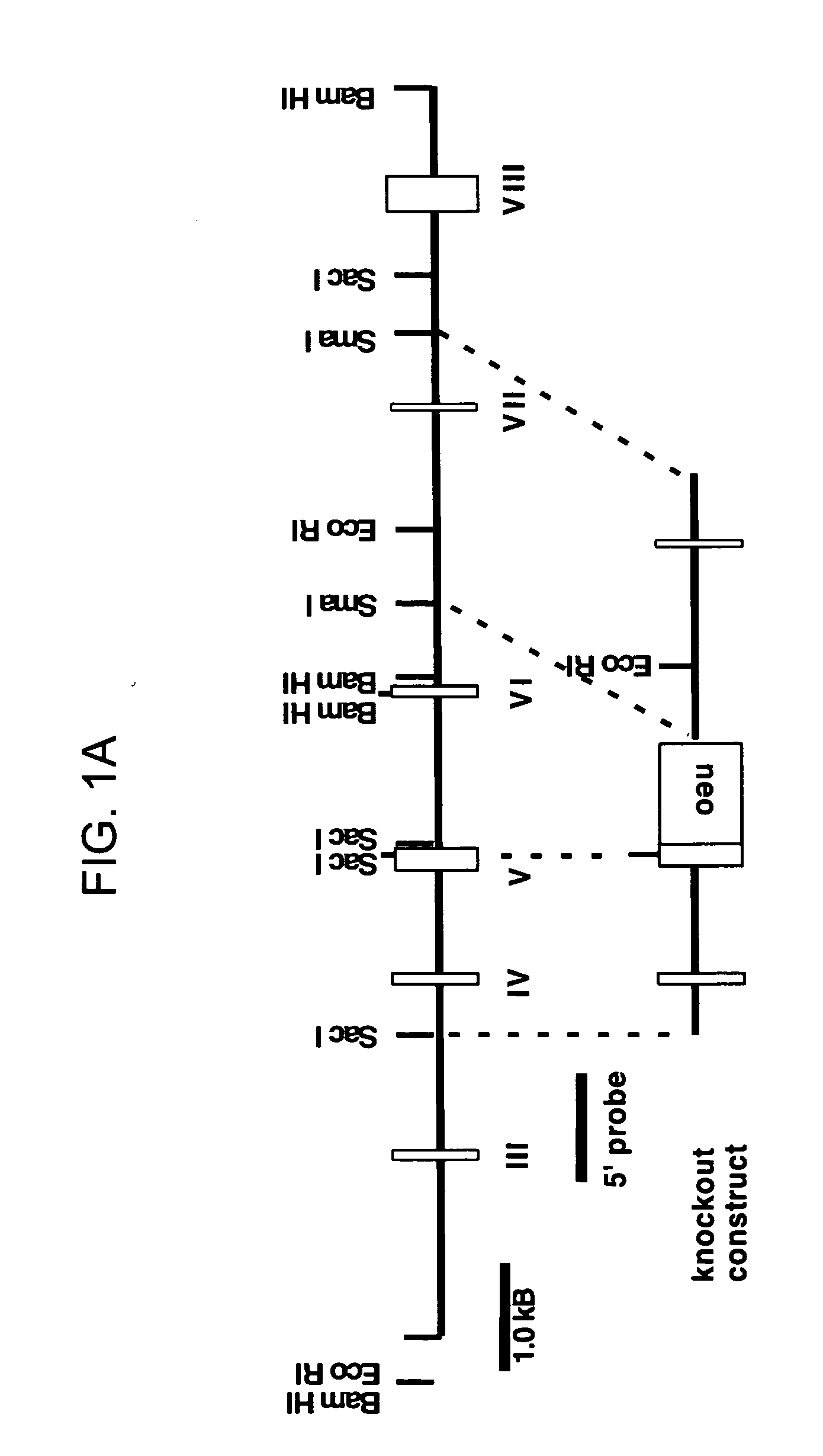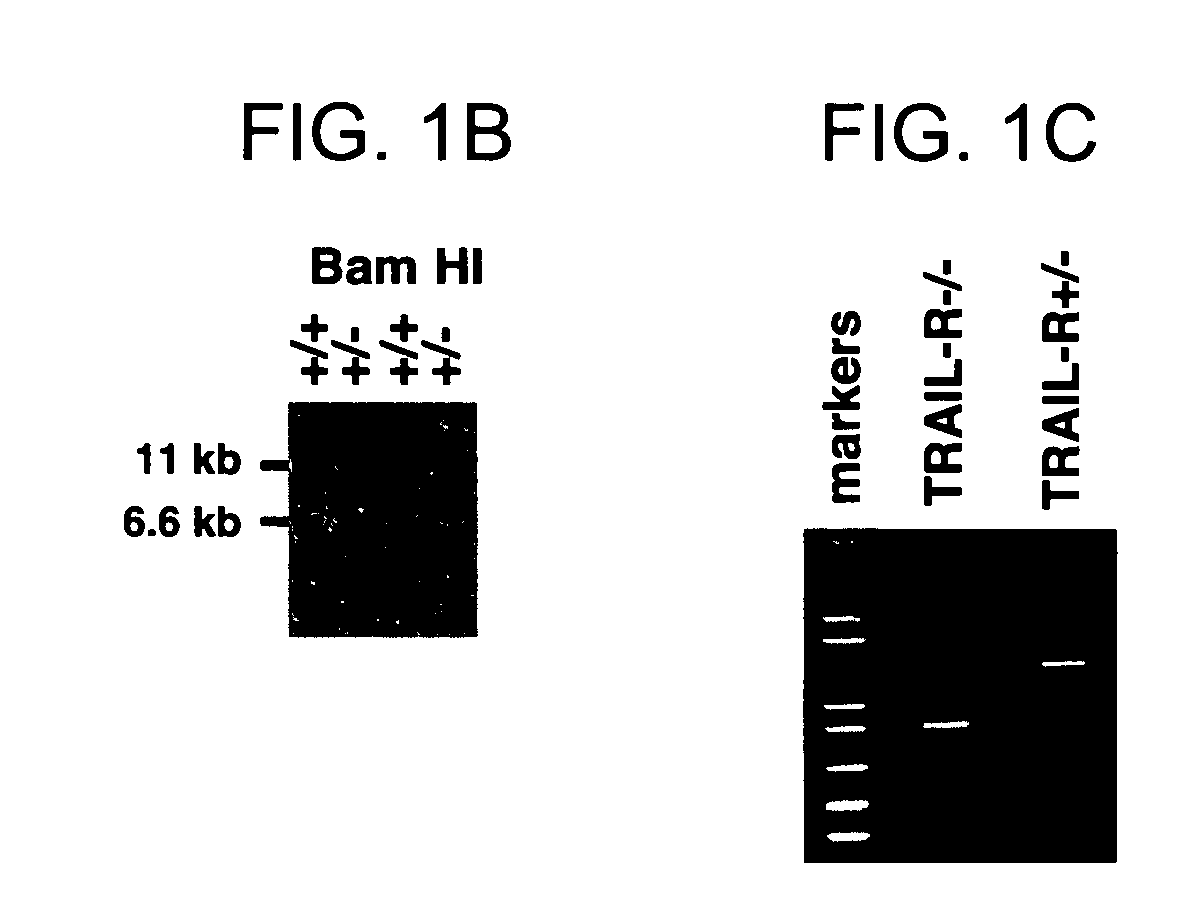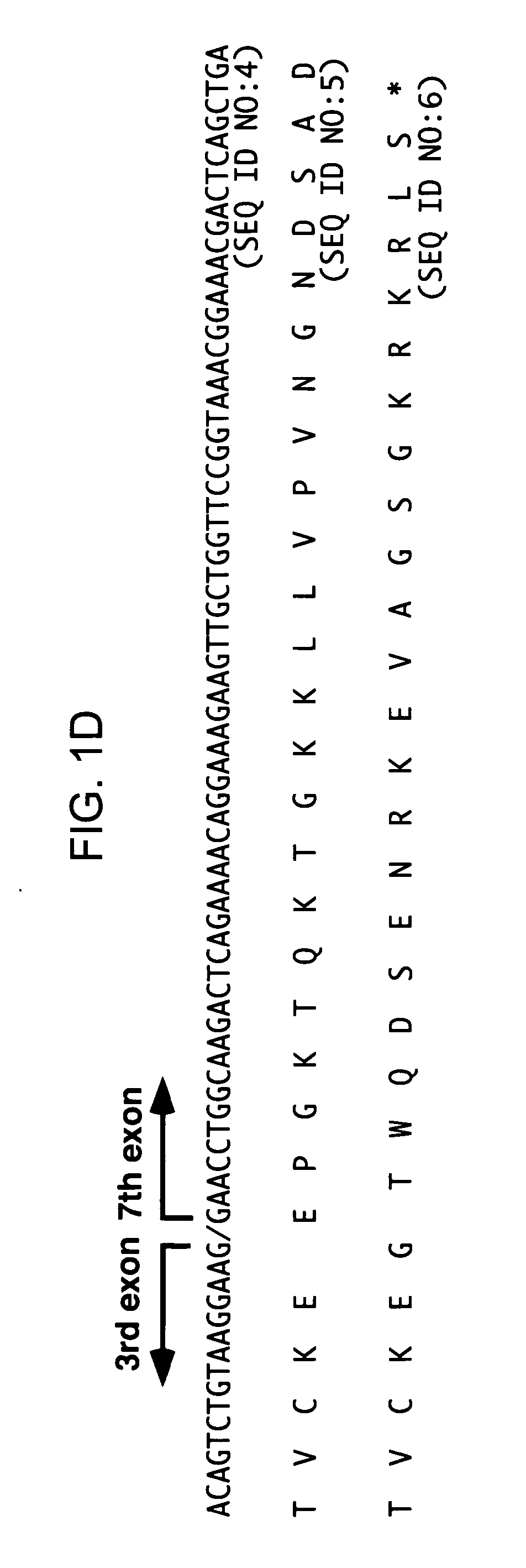TRAIL-R as a negative regulator of innate immune cell responses
a technology of innate immune cells and rails, which is applied in the direction of biological material analysis, peptides, drug compositions, etc., can solve the problems of increasing susceptibility, and achieve the effect of inhibiting the responsiveness of cells, increasing or decreasing the activity of these cells
- Summary
- Abstract
- Description
- Claims
- Application Information
AI Technical Summary
Benefits of technology
Problems solved by technology
Method used
Image
Examples
example 1
Generation of TRAIL-R− / − Mice.
[0084] To assess the normal physiological function of the TRAIL receptor, TRAIL-R− / − mice were generated. The knockout construct replaced a portion of exon 5 (containing the transmembrane domain) and exon 6 with a neomycin gene cassette (FIG. 1a). Embryonic stem cells containing the desired homologous recombination were identified by Southern blot analysis using 5′ and 3′ probes and used to generate TRAIL-R heterozygous mice (FIG. 1b). TRAIL-R+ / − mice were crossed to C57BL / 6 for several generations and subsequently inter-crossed to produce homozygous animals. TRAIL-R− / − mice were born at the expected Mendelian ratios and showed no gross developmental abnormalities.
[0085] RT-PCR analysis was performed to determine if the TRAIL-R was indeed absent in TRAIL-R− / − mice. Direct protein analysis was not possible because none of the commercially available antibodies for human DR4 or DR5 cross-reacts with the mouse TRAIL-R protein. Furthermore, a rabbit polyc...
PUM
| Property | Measurement | Unit |
|---|---|---|
| Immunogenicity | aaaaa | aaaaa |
Abstract
Description
Claims
Application Information
 Login to View More
Login to View More - R&D
- Intellectual Property
- Life Sciences
- Materials
- Tech Scout
- Unparalleled Data Quality
- Higher Quality Content
- 60% Fewer Hallucinations
Browse by: Latest US Patents, China's latest patents, Technical Efficacy Thesaurus, Application Domain, Technology Topic, Popular Technical Reports.
© 2025 PatSnap. All rights reserved.Legal|Privacy policy|Modern Slavery Act Transparency Statement|Sitemap|About US| Contact US: help@patsnap.com



